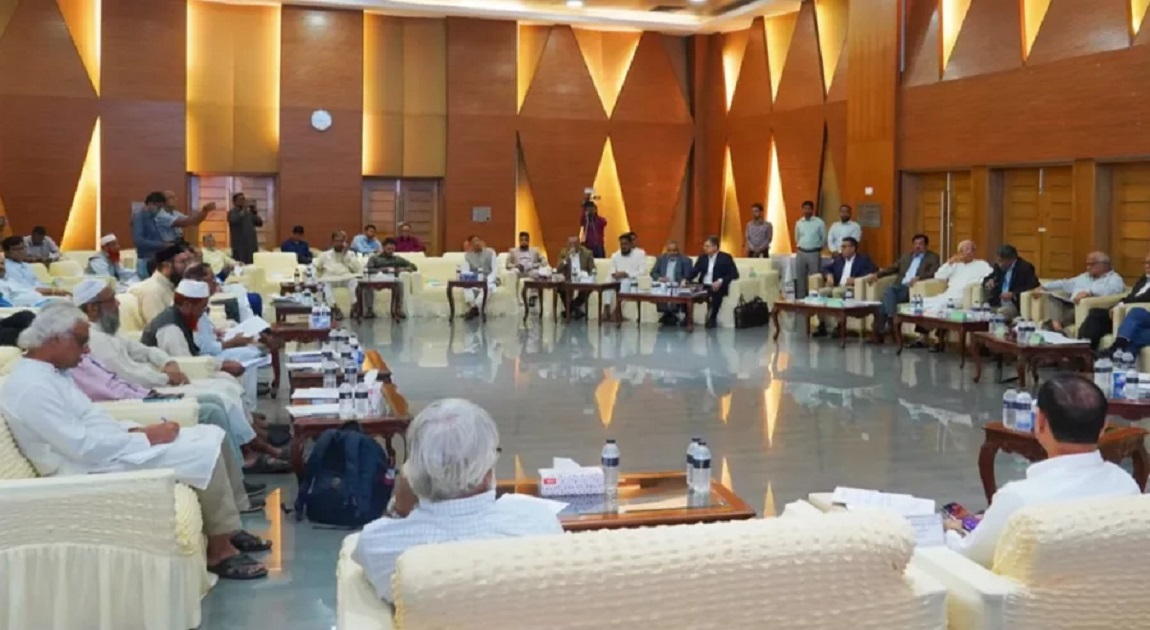The much-anticipated second phase of discussions by the National Consensus Commission has ended without any decision regarding the proposed caretaker government system.
Although the matter dominated the talks, the commission ultimately decided to defer further discussions on the issue.
During a lunch break in the ongoing dialogue, several political parties explained that the structural framework of the caretaker government depends heavily on decisions regarding both the upper and lower houses of parliament.
As such, a final resolution on the caretaker issue cannot be made until there is a decision on the formation of the upper house.
Jonayed Saki, chief coordinator of the Ganosamhati Andolon, pointed out past dissatisfaction with the role of the judiciary in leading caretaker governments.
He also criticized previous decisions to appoint the president as the chief advisor, noting that such moves had failed to produce positive outcomes.
Given the political nature of the caretaker government issue, most parties proposed that parliament itself should have authority over the matter.
According to Saki, discussions have floated the idea of forming a seven-member committee comprising members of both parliamentary chambers.
This committee would elect the chief advisor for the pre-election period either by consensus or through a ranking-based voting system.
"However," Saki added, "without finalizing the structure of the upper house, no concrete decision on the caretaker framework can be made at this stage."
Communist Party of Bangladesh (CPB) General Secretary Ruhin Hossain Prince argued for reforms to both the name and powers of the caretaker model.
“If such a government is needed before every election, it raises questions about the actual reforms in the country’s political system,” he said.
Prince suggested that, for now, the name should be changed to a “Non-Partisan Interim Election Oversight Government.”
He emphasized that its sole responsibility should be to conduct the national election, with no authority over other policy matters or local government elections.
In addition to the caretaker issue, the commission also discussed the process of appointing the Chief Justice. Most political parties proposed a change in the current seniority-based appointment system. Instead of automatically appointing the most senior judge from the Appellate Division, they suggested selecting one from among the top two candidates.
Highlighting concerns about judicial impartiality, Asaduzzaman Fuad, Secretary General of the AB Party, said, “Many current judges were appointed during the Awami League era.
Some were chosen not based on merit but on political considerations. Appointing one of them solely based on seniority may undermine the transparency of the judiciary.”
Fuad called for a complete overhaul of the judicial appointment system to ensure independence and public trust in the legal process.
The commission is expected to revisit these discussions after further consultations on the structure of the upper parliamentary chamber.














-20260226080139.webp)





-20260225072312.webp)








-20260219054530.webp)
-20260224075258.webp)





-20260221022827.webp)